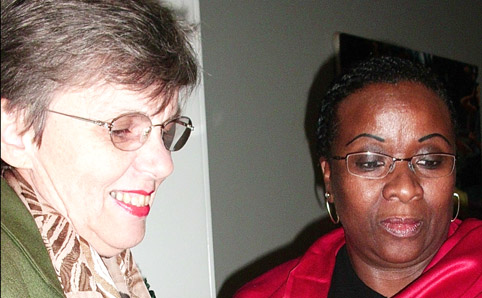Latest News Archive
Please select Category, Year, and then Month to display items
![]()
The National Research Foundation (NRF) ratings are considered the benchmark for research excellence. This year the University of the Free State (UFS) has 17 newly NRF-rated researchers. This brings the total number of NRF-rated researchers at UFS to 160.
NRF ratings are allocated based on a researcher’s recent research outputs and impact as perceived by national and international peer reviewers. The rating system encourages researchers to publish high-quality research papers in journals of high impact and to publish books through reputed academic publishers. The NRF rating system is a valuable tool for benchmarking the quality of our researchers against the best in the world.
Research at the heart of the UFS
Prof Francis Petersen, Rector and Vice-Chancellor, has indicated that the UFS provides significant support to researchers to apply for new NRF ratings or to re-apply for rating. These initiatives include the mock NRF rating panels managed by the Prestige Scholars Programme (PSP), evaluation of individual research outputs and recommendations on timely applying for rating, and improvements on rating applications by a panel consisting of internal and external members. These initiatives are bearing fruit by increasing the number of rated researchers who will transform the research profile and increase the diversity of UFS researchers.
Cultivating the best researchers.
According to Eleanor van der Westhuizen, from Research Development: “The rating of individuals is based primarily on the quality and impact of their research outputs over the past eight years, taking into consideration the evaluation made by local and international peers. It identifies researchers who count among the leaders in their fields of expertise and gives recognition to those who have a sustained production of high-quality research outputs. Several South African universities use the outcomes of the NRF evaluation and rating process to position themselves as research-intensive institutions, while others such as the UFS provide incentives for their staff members to acquire and maintain a rating.”
Cream of the crop
The UFS has also upped the ante with regard to its total number of NRF-rated researchers during the latest rating and evaluation, with an increase from 149 to 160 rated researchers in 2018.
Prof Heidi Hudson, Dean of Humanities, received an NRF B-rating, which brings the total of B-rated researchers to six. Other B-rated researchers incude Prof Johann Meyer (Mathematics), Prof Fanie Snyman and Prof Francois Tolmie (Theology), Prof Felicity Burt (Medical Microbiology) and Prof Andre Roodt (Chemistry). A total number of 10 new C-ratings and six new Y-ratings were achieved during the 2018 evaluation process.
“NRF-rating is indicative of the university’s drive to enhance its research profile nationally and internationally. Congratulations to all the scientists and scholars who received a rating in 2017. I am thankful to our academics for their commitment to the rating process,” said Prof Corli Witthuhn, Vice-Rector: Research at the UFS.
Empowering teachers: Working with head, heart and hand
2011-06-14
 |
| Prof. JJE Messerschimdt (left) is the main supervisor and Dr KE Khabanyane the co-supervisor of this study within our Faculty of Education. |
The implementation of Curriculum 2005 brought about new demands in the teaching and learning of languages. In teaching languages, it is expected of teachers to focus on the development of the basic language skills which are embedded in the first four outcomes, namely listening, speaking and reading which is coupled with viewing and writing.
Although the learning outcomes are developed as an integrated whole, each one needs special attention. According to the NCS, the third learning outcome namely "reading and viewing", is stated as follows: "The learner will be able to read and view for information and enjoyment, and respond critically to the aesthetic, cultural and emotional value in texts".
Julia Ramabenyane researches The facilitative role of Grade 1 teachers in the development of reading skills in Sesotho. Empowering teachers: Working with head, heart and hand, a workshop for Grade 1 teachers, was held on 27 and 28 May in the Winkie Direko Building on our Main Campus. The aim of the workshop was to create an opportunity for teachers to better understand their role as facilitators in the development of reading skills.
In addition to the facilitation of Mrs Ramabenyane, Prof. Hasina Ebrahim (lecturer at the School of Social Sciences and Language Education), grade 1 teachers from Lesedi and Karabelo Primary Schools, as well as the HOD of Foundation Phase and three grade 1 learners from Karabelo Primary School in Rocklands, participated in the activities.
This workshop, together with other reflective group sessions, formed part of the emancipatory action research of Julia Ramabenyane's Foundation Phase PhD studies. This PhD study is titled The facilitative role of grade 1 teachers in development of readings skills in Sesotho.